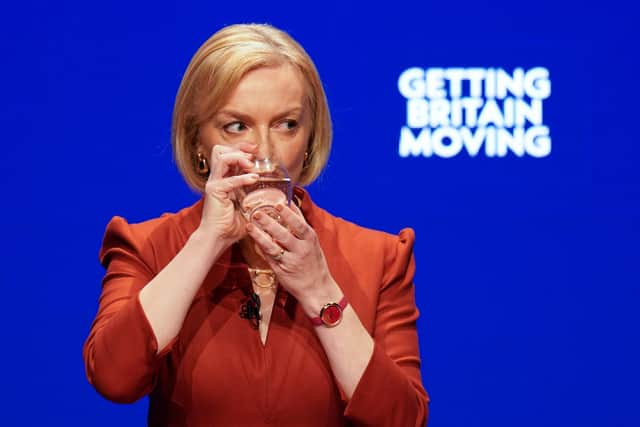Liz Truss conference speech: What we still don't know
Given the volatility of the markets, and their reaction to the mini-budget less than two weeks ago, few expected any major announcements during her first conference speech.
But amid vocal and high-profile disagreements between cabinet ministers, the speech left as many questions unanswered as before the new prime minister took to the stage, and as many of potentially legacy-defining decisions unresolved.
Advertisement
Hide AdAdvertisement
Hide AdWith two U-turns already under the belt - first the 45p tax rate, and then the bringing forward of the OBR forecasts, some leading cabinet figures had called for a third - a pledge to commit as the previous Government had to raise benefits in line with inflation next year.


Two clear, if ideologically-diverse factions emerged - those centered around former leadership rival Penny Mordaunt who very publicly argued the Government must raise benefits, and those who argued they should be pegged to average wages which are increasing considerably more slowly.
The decision on benefits is paramount, primarily because it affects the quality of life for millions of people.
But the political significance lies in the optics of the Government’s approach to those suffering worst from the cost of living crisis.
Advertisement
Hide AdAdvertisement
Hide AdSome of the political damage of a tax cut for those who least need it may have been alleviated by the 45p U-turn, but a real-term benefit cut for those who can least afford it could cement the image of the party’s political priorities for any voters left undecided.
Further, the row over benefits carries significance because the Government still needs to work out how to find £45 billion to pay for its mini-budget.
It is clear any tax rises are unpalatable to the Government. Critics argue the ‘larger pie’ Truss spoke of being created by a low-tax economy will never materialise, but even her staunchest loyalists don’t think it will happen quickly enough to plug a budget gap of that size.
From the Northern Ireland protocol to scrapping junk food advertising, and from how deregulated fracking will be to whether to raise the state pension age, the major decisions yet to be taken – and the potential for political damage – are as wide ranging as they are numerous.